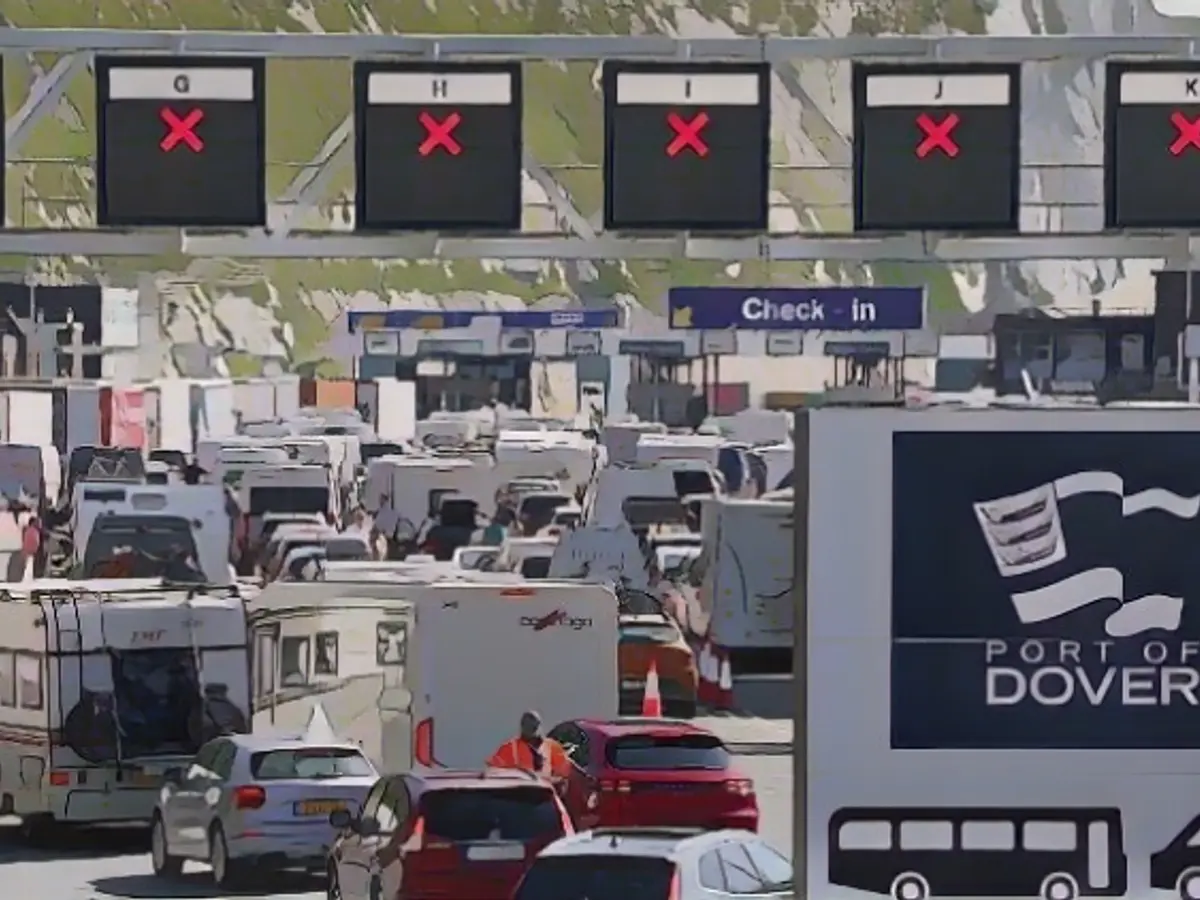Brexit continues to cause new concerns for the economy
Great Britain and the EU - the separation has now lasted three years. A time in which we have become accustomed to it. But the problems remain and new ones are constantly being added. There will be new challenges for the economy in 2024.
Three years after the final Brexit, the consequences of the UK's exit from the EU continue to worry the economy on both sides of the Channel. "The main victims of Brexit are smaller companies that have often given up," said the German ambassador in London, Miguel Berger. "For the big companies, it is a certain cost factor, but they have gotten used to dealing with it."
According to estimates, bilateral trade has slumped by 10 to 15 percent since Brexit. The UK has now slipped out of the top ten of Germany's most important foreign trade partners. The UK left the EU at the end of January 2020. Since January 1, 2021, the country has also no longer been a member of the EU customs union or the single market. This led to considerable delays in trade, especially at the beginning.
The head of the German-British Chamber of Industry and Commerce (AHK) in London, Ulrich Hoppe, said that the economy has now largely adjusted to the new conditions. Trade is growing again - this gives hope for the future that parts of the Brexit dip can be offset in the medium term. Industries such as renewable energies in particular have potential, said Hoppe. "German technical expertise can help to tap into the huge potential of renewable energies in the UK."
Risk assessment will cause delays
However, EU food exporters could face new problems. After several postponements, the UK now wants to introduce import controls for animal and plant products. "They will of course pose challenges for this sector, but for the overall breadth of the German-British economy, the impact of the new regulations is rather small," said Hoppe. York-Alexander von Massenbach from the British Chamber of Commerce in Germany (BCCG) said that the expected risk assessment of goods would lead to additional organizational work and delays.
The warnings on the British side are greater. For many British companies, it is easier to trade with countries further afield than with the EU due to EU regulations such as the CO2 levy, the head of the British Chambers of Commerce (BCC), Shevaun Haviland, recently told the Financial Times. In particular, sectors such as agriculture and chemicals, which have already been hit by new Brexit tariffs, are now confronted with reporting obligations on supply chains, CO2 emissions and the use of plastic packaging. Haviland called for the British government to adapt its rules to those of the EU.
Limiting immigration through required annual income?
Since Brexit, German businesses have been particularly concerned about the residence regulations, which make it more difficult to send skilled workers on short-term assignments and more expensive to relocate permanently. The Conservative British government recently announced that it would significantly increase the required annual income for foreign workers in order to limit net immigration. "Especially for younger people looking to start a career here, these hurdles will be almost insurmountable," said Ambassador Berger. However, schools and cultural institutions would also not be able to pay the higher salaries.
The UK has lost a lot of its appeal as a result, said BCCG expert von Massenbach. Academic exchange has suffered major losses. "Companies based in the UK are also increasingly running out of arguments to deal with complex, constantly changing visa options in order to offer internships or traineeships for a limited period of time."
The consequences of another change are not yet foreseeable. In areas such as trade, competition, employment and consumer protection, the precedence for initially adopted EU law in the UK will end in the new year. Von Massenbach expects growing legal uncertainty. "Affected companies must remain vigilant in order to be able to react quickly to changes. The associated additional bureaucracy and costs will be inevitable, at least in some areas," said the partner at commercial law firm GSK Stockmann in London.
Read also:
- Why there is still no EU funding for green Saar steel
- 3 billion Saar Fund is unconstitutional
- Lack of snow also opens up new opportunities for winter tourism
- Abrupt end to e-car subsidies
Following Brexit, the UK's withdrawal from the EU's customs union and single market has significantly impacted foreign trade. Bilateral trade between Great Britain and the EU has decreased by 10-15%, leading to the UK slipping out of Germany's top ten most important foreign trade partners. The consequences of Brexit have caused concerns for both sides of the Channel, particularly affecting smaller companies that have had to cease operations due to the new trade barriers.
On the other hand, the UK government's plan to introduce new import controls for animal and plant products may pose challenges for EU food exporters, leading to additional organizational work and delays. According to York-Alexander von Massenbach from the British Chamber of Commerce in Germany, these new regulations will impact the overall breadth of the German-British economy, although not to a significant extent.
Source: www.ntv.de








